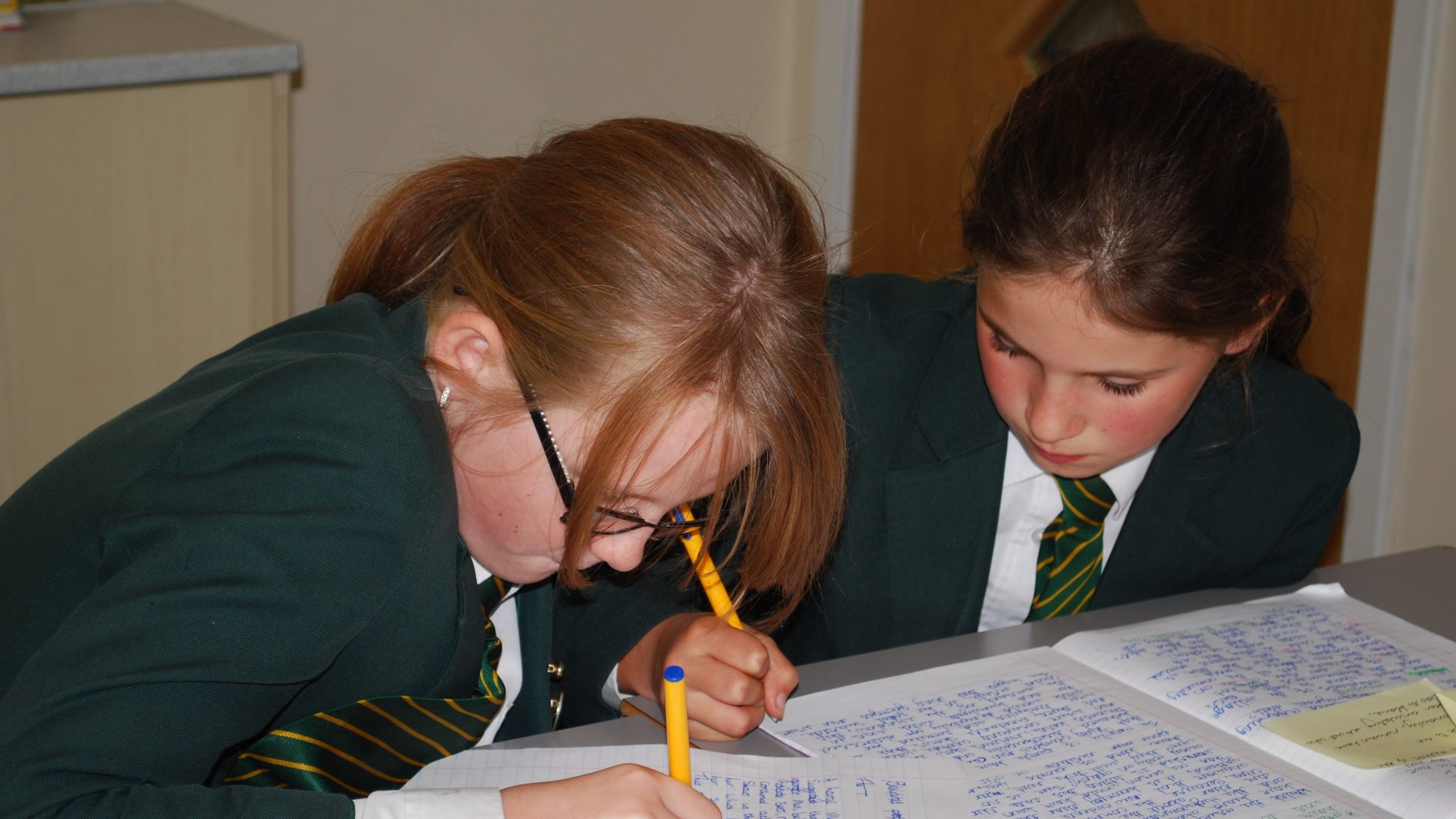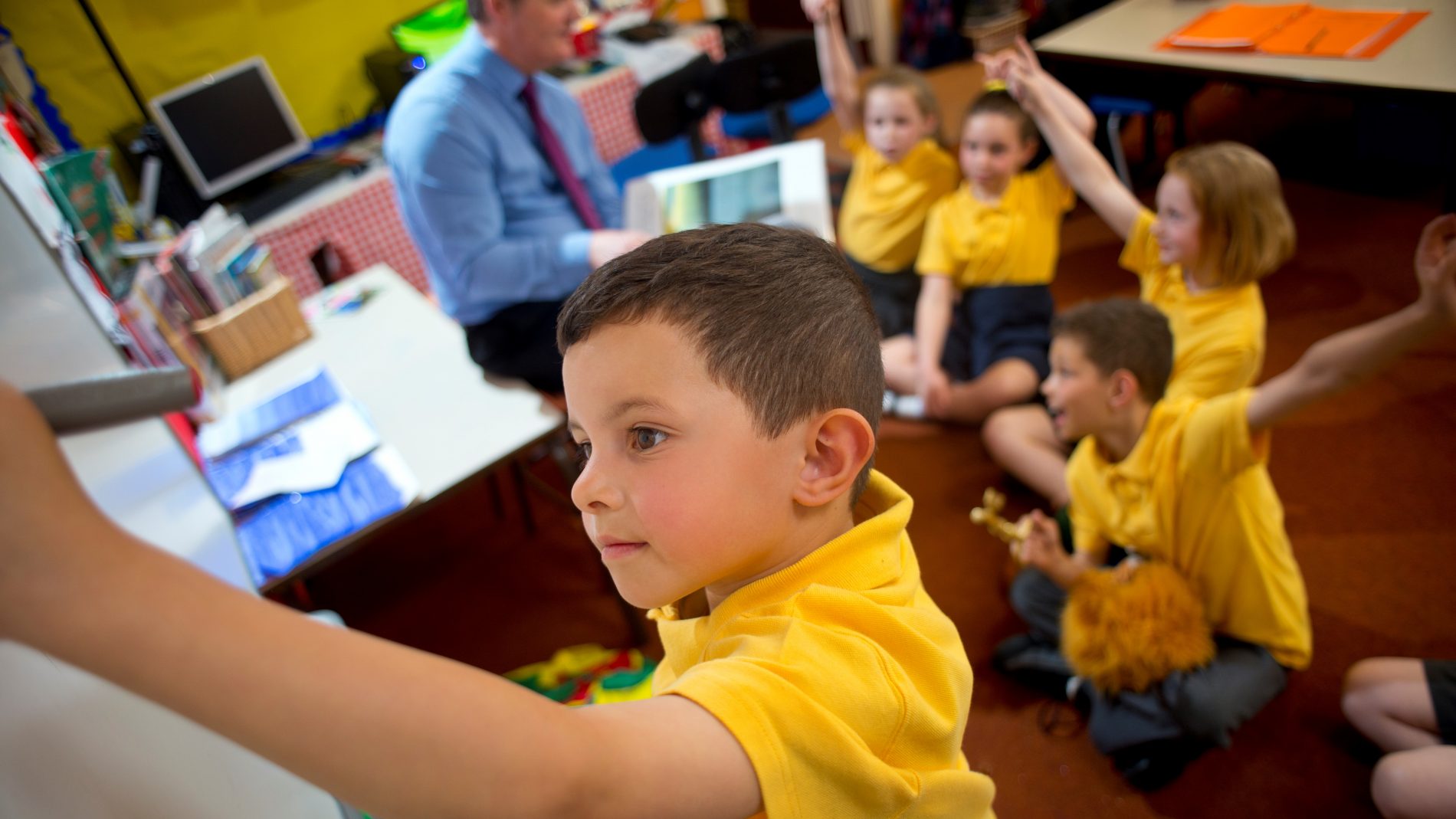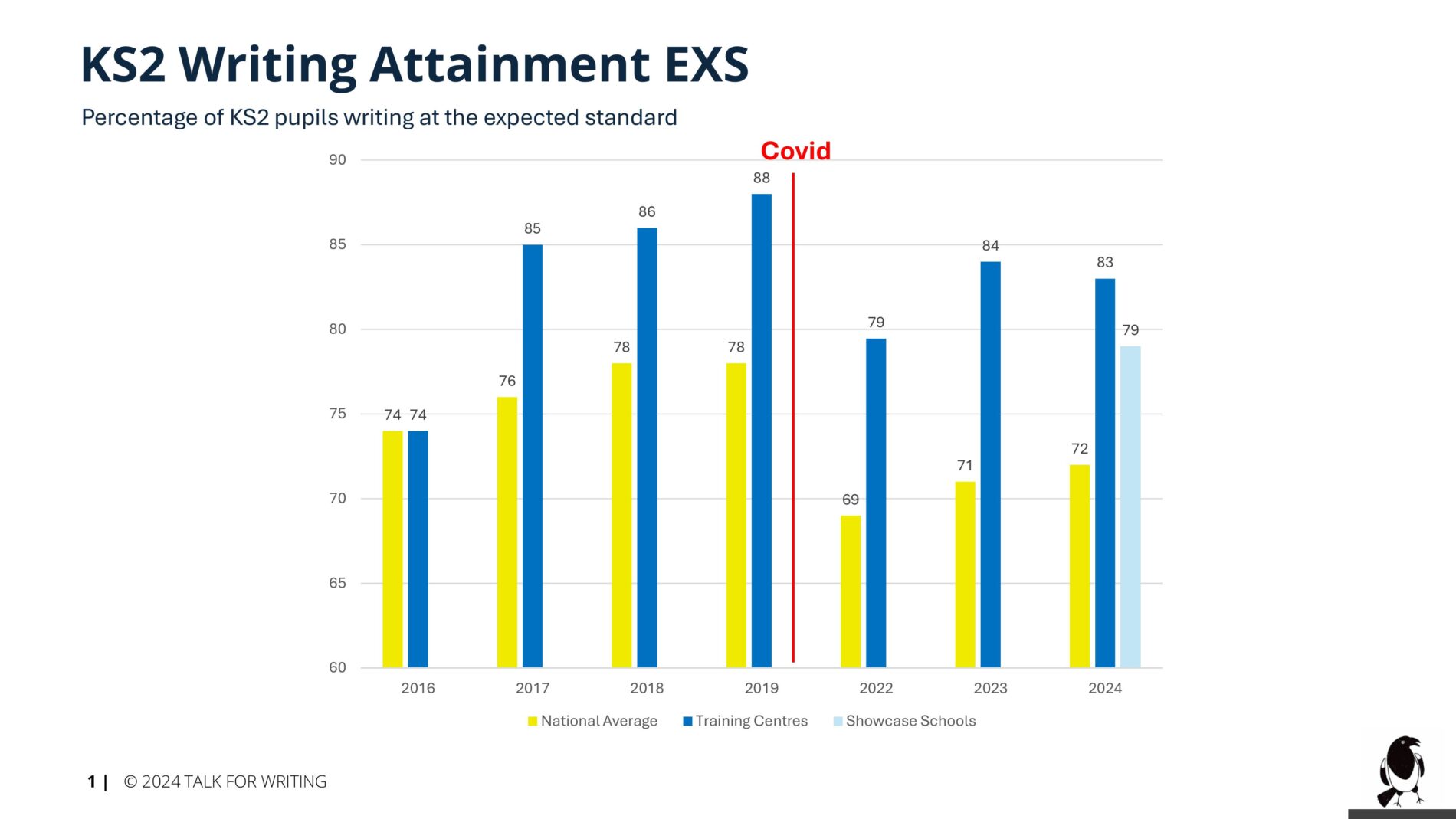

What is Talk for Writing?
Talk for Writing is an engaging teaching framework developed by Pie Corbett and the Talk for Writing team. It is powerful because it is based on the principles of how children learn. It enables children to imitate the language they need for a particular topic orally, before reading and analysing it, and then writing their own version. An overview of the approach can be seen here.
The impact of Talk for Writing
Since 2016 when the new SATs came into place, we have been analysing the data from our 14 Talk for Writing Centres and comparing our standards with the national picture. We know that the centres are faithful to the approach and so we can see the impact of Talk for Writing by comparison with the rest of the country.
Our Training Centres are nearly all in challenging areas. With the exception of one large town school, the 14 schools serve deprived areas where challenges are great. St Matthews in Birmingham, for instance, has 87% pupil premium.
On average our schools have 37% pupil premium, which is above the national average of 25%.
The percentage of children for whom English is an additional language in our schools is 54%, whereas nationally it stands at just over 20%.

How effective is Talk for Writing?
The data shows that TfW Centres, despite serving more challenging areas, attain at a significantly higher standard than the national average.
Between 2016 and 2019, there was an improving picture, which led to a 10% difference between Training Centres and the national average. Post-covid when SATs tests resumed in 2022, the 10% gap remained and is at 11% in 2024.
If you want Talk for Writing to raise standards in your school, contact a trainer or read the key Creating Storytellers and Writers book that introduces the principles and practices of the approach, it will all have a positive impact on your teaching.
However, be aware that to raise standards in a school requires time, leadership and commitment. It cannot just be done through one day of inset training. For this reason, we are increasingly working with schools on two-year projects. Working with committed schools on developing and embedding Talk for Writing over time is what leads to effective change, higher standards and improved progress.
Pie Corbett
Academic research related to Talk for Writing

Talk for Writing: Review of related research
A research review of Talk for Writing by Roger Beard, Emeritus Professor at the Institute of Education. This looks at the research that underpins the Talk for Writing process. In this, the Primary Writing Project, which was a two year cluster approach to establishing Talk for Writing in groups of schools, is referred to (2015). Download here.

Rosenshine’s 10 Principles of Instruction and TfW
How Rosenshine’s 10 Principles of Instruction have long been embedded within Talk for Writing Download here.

Developing a communication supporting classrooms observation tool
A Department for Education research report which covers most of the underlying aspects for Early Years on developing communication. At the back there is an observation tool and all the research references (2012). Download here.

Evaluation report of the Strategic School Improvement Fund programme for Early Years, featuring Talk for Writing
Evaluation of two Strategic School Improvement Fund (SSIF) supported projects, Communication and Language and Talk and Writing, in Warrington Teaching Schools Alliance schools. This work was delivered as a commission by HASCE and researched by the University of Cumbria (2019). Download here.

Children's cognitive development and learning
A Cambridge Primary Review Trust report by Usha Goswami with comments on imitation (2015). Download here.

Principal’s Sabbatical Report: Christopher Fox
Research and analysis into the impact of the Talk for Writing programme with a view to raising writing achievement across the curriculum (2017). Download here.

The Role of Oral Storytelling in the Development of Narrative Competence, Confidence and Creativity in Children in the Early Years Foundation Stage: Jane Ralphs
Dissertation submission by Jane Ralphs for a Masters in Education (2023) Download here.

Final Dissertation: Cristina Serrabassa Parramon, Central University of Catalonia
The Talk for Writing method and its impact on pupil results (2019). Download here.

Final Dissertation: Mireia Guiteras Folgarolas, Central University of Catalonia
Analysis of the use and impact of the Talk for Writing methodology in Heath Mount Primary School, Birmingham (2019). Download here.

Transforming Writing Final Evaluation Report
This was a research project that looked at the role of formative assessment within Talk for Writing (2013). Download here.

Time to Talk: Implementing Outstanding Practice in Speech, Language and Communication
An accessible book that covers much of the research and refers to Talk for Writing by Jean Gross CBE. who was the UK government's former Communications Champion and has led many national initiatives aimed at improving children and young people's life chances. Jean's work includes the National Strategies' research on inclusion, SEAL (Social and Emotional Aspects of Learning), and the Every Child a Reader and Every Child Counts programmes. She is the author of numerous articles and best-selling books on children's issues, including Beating Bureaucracy in Special Educational Needs. Purchase here.

Rosenshine's Principles in Action
Barak Rosenshine's original paper Principles of Instruction (2010), published by the International Academy of Education (IAE), has a superb worldwide reputation for relating research findings to classroom practice. Tom Sherrington adds a clear and practical commentary (2019). Pie says: "This little book is about the research-based principles of effective teaching. It is brief, easy to read and clearly sets out the core practices. When I read it, I realised that all of them underpin Talk for Writing and Reading and can be applied and developed in any school. A little gem." Purchase here.

Talk for Writing in the Early Years
Chapter 1 (p3-17) of this Talk for Writing core text by Pie Corbett and Julia Strong is entitled The centrality of story and the origins of Talk for Writing and looks at how and why Talk for Writing was founded. Purchase here.
“Talk for Writing is a whole-school philosophy to teaching and learning that will catalyse improvement and raise aspirations across the school. Its impact is felt in every area of the school from the humdrum of the school's data to the vibrancy of the learning environments, excitement in the classroom atmosphere and the tangible buzz in the staff-room and renewed enthusiasm for a profession and moral purpose we all believe in passionately.” James Munt, Executive Headteacher, Front Lawn Academy, Havant
"Our direct experience tells us that TfW is an incredibly powerful teaching and learning approach. Most importantly, our students tell us time and again that it really helps, and their improving rates of progress show us that this is indeed the case. The effect on a school that truly embraces and embeds the TfW approach can be transformational."Louise Hamilton, deputy head at John of Gaunt School
“I’m asked many times, 'Can this work in my school?' Well, yes, it can. If it can work with a catchment in a deprived area, then why can it not work anywhere? If you are thinking about Talk for Writing as an option for your school, my advice would be to go and see the results, create an action plan and be determined that there are no obstacles to achieving success.”Ian Clennan, headteacher of Selby Community Primary School
“All members of staff have been excited by the writing their classes have produced using Talk for Writing as a whole-school strategy. Our children have achieved beyond what is expected in terms of data and progress and are increasingly able to transfer their knowledge to other areas of the curriculum. 'I don’t know what to write' has become a phrase from the past."Liz Martin, Talk for Writing Project Leader, East Hunsbury Primary School
“Previously we did lots of speaking and listening but it didn’t seem to emerge in the writing. The Talk for Writing techniques really motivated the children. Now they automatically read what they have written and discuss whether it sounds good. It has transformed the way they write.”Teacher from Luton at the end of a talk for writing project



